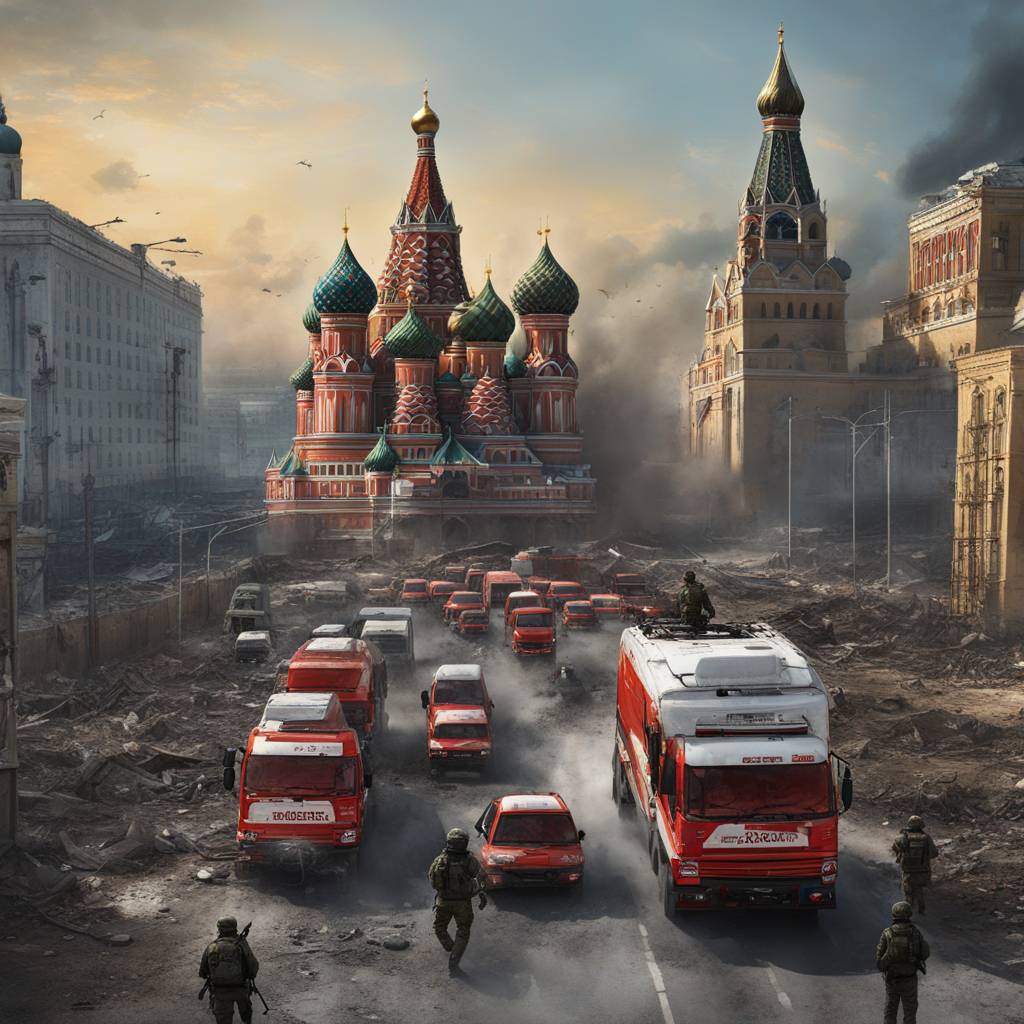The Russian Foreign Ministry has cast doubt on claims that the Islamic State was responsible for the attack on a Moscow concert hall that killed over 140 people. Instead, they have suggested that Ukraine may have been behind the attack, despite lacking evidence to support this claim. The U.S. has said the attack was carried out by Islamic State Khorasan, the group’s Afghan branch, while Ukraine has denied any involvement. However, Russian officials insist that the West is using Islamic State as a scapegoat to deflect blame from Ukraine and its supporters.
Russian President Vladimir Putin has also suggested that Ukraine may have played a role in the attack, claiming that individuals on the Ukrainian side facilitated the gunmen’s escape across the border. The director of Russia’s FSB security agency has also implicated Ukraine, along with the United States and Britain, in the attack. However, Belarusian leader Alexander Lukashenko stated that the gunmen had initially tried to enter Belarus before heading towards Ukraine once they found the border sealed. These conflicting accounts highlight the complexity of the situation and the lack of concrete evidence linking Ukraine to the attack.
The Foreign Ministry spokeswoman Maria Zakharova accused the West of quickly blaming Islamic State for the attack in order to shift attention away from Ukraine. She claimed that the Anglo-Saxon media had started spreading the ISIS theory mere hours after the attack occurred. Zakharova’s statements reflect Russia’s mistrust of Western governments and their perceived support for Ukraine. The geopolitical tensions between Russia and the West continue to shape the narrative surrounding the Moscow concert hall attack, with each side pointing fingers at the other.
Despite Western denials of involvement in the attack, Russian officials remain steadfast in their belief that Ukraine had a role in the massacre. President Putin’s insinuations and accusations by the FSB director underscore Russia’s suspicions toward its neighbor and Western allies. The lack of evidence and conflicting reports from neighboring countries add to the confusion surrounding the incident. International relations are further strained as Russia and the West face off over differing narratives regarding the Moscow concert hall attack.
The ongoing dispute over the perpetrators of the Moscow concert hall attack highlights the deep-seated mistrust and geopolitical tensions between Russia, Ukraine, and Western countries. With accusations flying back and forth and no conclusive evidence to support any theory, the situation remains murky. The role of Islamic State, Ukraine, and other actors in the attack continues to be a subject of contention, further exacerbating the already strained relations between Russia and the West. The aftermath of the attack underscores the challenges of navigating international relations in a complex and volatile geopolitical landscape.
In response to Russia’s claims, British Foreign Secretary David Cameron dismissed them as “utter nonsense.” The refutation from Western leaders underscores the divide between Russia and its Western counterparts. The conflicting narratives surrounding the Moscow concert hall attack further entrench the existing geopolitical tensions and mutual suspicions between Russia and the West. As the investigation continues and more information comes to light, the true perpetrators of the attack and their motivations may eventually be revealed. Until then, the fallout from the incident continues to reverberate in international relations, highlighting the complexity and challenges of navigating a world fraught with geopolitical rivalries and suspicions.








